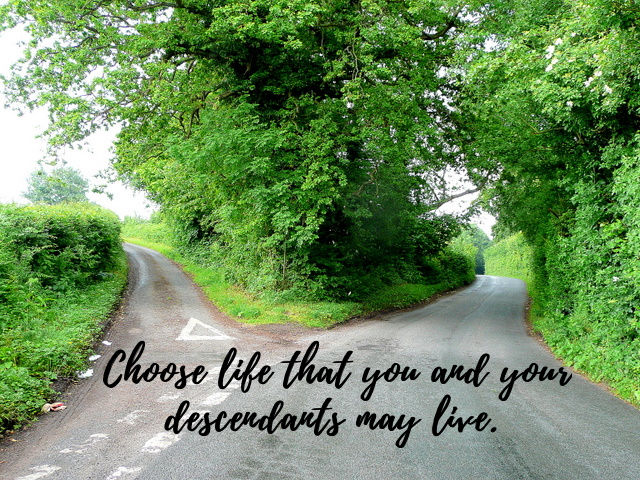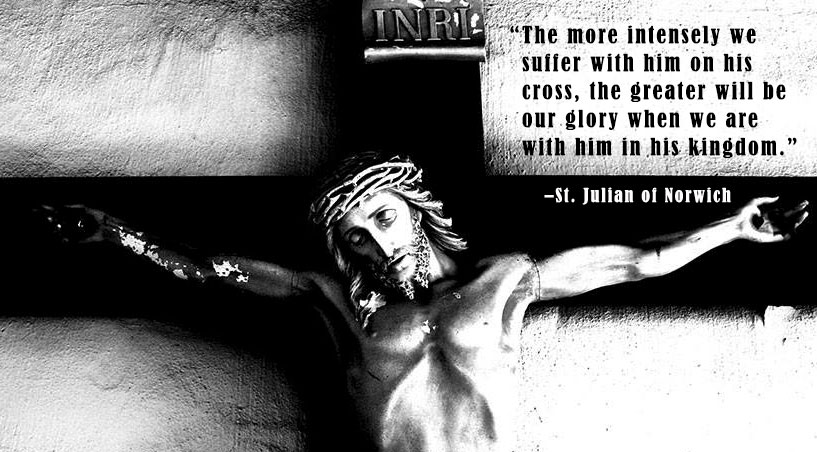Readings: Deuteronomy 31:1-8 – Psalm 145 – 1 Timothy 4:12-16 – Matthew 5:13-16
My dear graduates, you are gathered here for the last time as a class. This has been the home away from home, for many of you, for the last nine or ten years; you have known each other and grown together; you have formed relationships that have seen you through good times and bad. And so, as we come together for graduation this evening, I know that this is a bittersweet occasion for you, as it is for your teachers and all who have been privileged to be part of your life these past years. You are certainly excited to graduate and move on with the rest of your life, but you are certainly also sad to leave behind so many close friends as you go to different schools in the year ahead.
But however we all feel about you moving on, move on you must. That is what life is all about: growing and learning and becoming and going forward. We all want that for you, and hopefully that is what you want for yourselves. And so, on this occasion, I have been trying to figure out what words I would want you to hear on this day. As I have prayed about this homily, the Spirit seems to be wanting me to talk to you about success. Success is that pot of gold that we all want for ourselves, and many people have written about it.
Dale Carnegie wrote, “The person who gets the farthest is generally the one who is willing to do and dare. The sure-thing boat never gets far from shore.” Woody Allen once said, “Seventy percent of success in life is showing up.” Johann Sebastian Bach wrote, “I was made to work. If you are equally industrious, you will be equally successful.” I could go on and on quoting all sorts of famous people who have given their opinion on how to be successful, but I thought I might stop there and instead focus on some common advice about success that you usually hear at graduations.
One thing you often hear is “Anything’s possible.” I think that’s more or less true, but that also doesn’t necessarily mean it’s good news. God only knows what’s ahead for each of you: some of it will be incredibly excellent – the stuff far beyond your wildest dreams. Those moments are God’s gift to you. Some of it may also be disappointing, frustrating or even sad. But whether the future brings joy or sadness, what is truly important is what you do with it. If God gives you joy, your task is to share it – because no gift is ever given just for ourselves. And if life brings you pain on occasion, the task is to get through it as best you can, knowing that you are never alone: God is with you all the way.
Another piece of advice you might hear at graduation is “Believe in yourself.” That’s nice advice as far as it goes. Unfortunately, though, it doesn’t go very far. If all you believe in is yourself, what do you do when you don’t know what to do? Who do you turn to? What happens when you mess up? I think far better advice is what you’ve been taught for all these years here at Notre Dame School: believe in Jesus. Jesus loves you, Jesus knows what it’s like to live our human life – he knew joy and he knew sorrow and he got through it all. If you believe in Jesus, you’ll always have a deep well of grace to draw from when you are tested, you’ll always be able to discern the right path, and you’ll be known as a person who is steadfast and courageous, not blown around by whatever fad comes along next. Jesus is your Lord and Jesus is your friend. He has known you and loved you before you were you, and he will keep on loving you no matter where life takes you.
Sometimes at graduations, you’ll hear “There’s nothing you can’t achieve.” I don’t personally think that’s true. There are lots of things we aren’t made to do, and I think we instead have to figure out what it was we were made to do. God has an important task for each of us to accomplish, and it’s up to achieve that. That is our vocation. That means we have to pray about what that is, to look for God’s will in our lives. I can tell you from personal experience, that if you do what God wants you to do in your life, you’ll be successful, and more than that, you’ll be happy every day of your life. It took me a while to figure that out, but it was worth it.
All in all, I think the best advice there is comes from a very reliable source. That source is Jesus in this evening’s Gospel reading. Jesus says that successful disciples have to be salt and light. We are called to season the world with the love and grace that Jesus has taught us. We are called to shine the light of God’s presence on a world that can sometimes be a dark place. Disciples make the world a better place, and through these years of Catholic education, you have learned how to do that. Now as you go forth into the rest of your life, you are called to put what you have learned into practice.
Sometimes putting what we have learned into practice can be difficult. Jesus certainly lived what he taught us, and it was difficult for him too. For him, being salt and light led him to the cross, where he paid the price for our sins. He did that because he loves us unconditionally and sacrificially. That kind of love gives us the possibility of eternal life one day in God’s heavenly kingdom. God loved us so much that he couldn’t bear the thought of living forever without us, so he sent his Son to become one of us and pay the price for our many sins, and to destroy the power that sin and death had over us.
That’s what success looks like for us believers in Christ. It looks like love beyond our wildest dreams. It looks like giving everything, trusting all the while that God will give us what we need in return. That’s how Jesus loves us, and that’s how we’re supposed to love one another too. We are probably not going to get nailed to a cross, but we are definitely called upon to give of ourselves, to lay down our lives for each other. That is how we can be salt and light in this world.
For all these years of Catholic school, you’ve been hearing that message. If you remember it, I think you will be successful in this life and in the life to come. The goal of all our lives is to get to heaven one day, and for the time you’ve been in our Catholic school, everyone has done their best to give you what you need to get there. And, as the writer of our first reading from Deuteronomy promises, you need not be afraid of what it takes to be successful because “It is the LORD who marches before you; he will be with you and will never fail or forsake you. So do not fear or be dismayed.”




You must be logged in to post a comment.